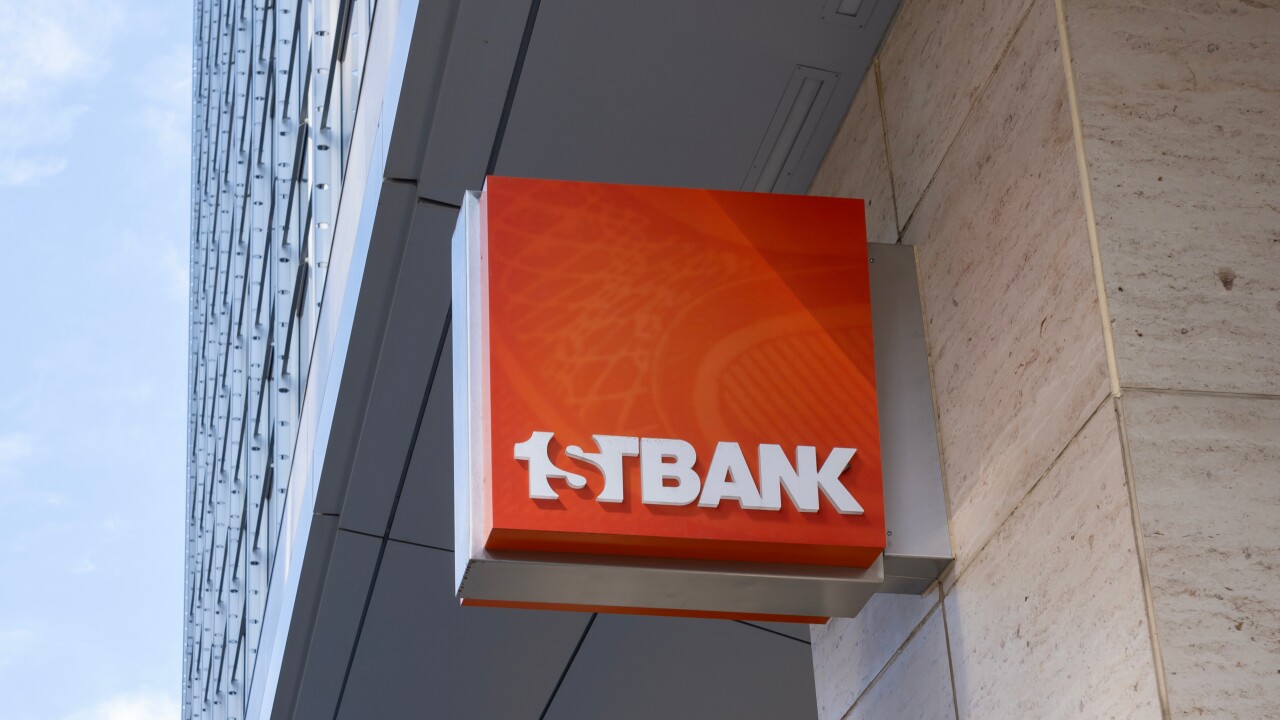The market for electronic collections of bad checks is crowded, but Purepay LLC, a $100 million buyout firm, hopes it can lead consolidation in the field through CybrCollect Inc., a company it bought in December.
Purepay is using CybrCollect as part of a cross-selling drive to “offer the entire customer base a front-to-back solution in remittance, whether that means remote deposit capture or back-office conversion, and bundle that with [check] recovery, as well,” Steve Valachovic, a managing director with the Columbus, Ohio, buyout firm, said in an interview last week.
CybrCollect was the third company acquired by Purepay since it was founded in January of last year. The first two were Creditron Inc., a Toronto provider of remittance software to middle-market businesses, and Netvantage Inc., a Gaithersburg, Md., processor that serves mainly state and local governments.
Purepay has a “significant amount” of money left in its coffers for acquisitions, Mr. Valachovic said, and it will continue to target “fragmented” industries. “At its core, our strategy is in industry consolidation.”
CybrCollect, which uses a decade-old automated clearing house re-presentment format, says it makes 88% of its collections on checks that bounce for insufficient funds within 15 days, and 94% within 30 days.
The strategy underlying re-presentment is predicated on the notion that account holders simply mistimed expenditures, and that additional funds are on the way — for example, in the form of regular payroll disbursements.
CybrCollect attributes its efficiency in collections to software it has honed over the years and a tactic of contacting banks to see if funds are available before re-presenting checks. The ACH format provides for two attempts.
“We know what’s going to go through the bank and work without making the call; we know what requires” contact with bankers, said Kathy Monroe, the La Crosse, Wis., unit’s chief executive. The approach “does not waste the attempts.”
Services like CybrCollect’s, which make money through state-governed fees assessed against those who write bad checks, are an alternative to check guarantee coverage, a key business for companies like First Data Corp., Fidelity National Information Services Inc., and Global Payments Inc. With a check guarantee, merchants pay a fee for every check they accept, and the guarantor assumes full responsibility for the check’s face value.
Ms. Monroe said that after CybrCollect collects the face value of a bounced check, “we turn around and go right after the state fee in a similar manner.” Such fees range from $20 to $40.
The company was formed in 1998 as “a spare-room business,” she said. That was the year Nacha, the electronic payments association, established rules authorizing electronic re-presentment for checks of $2,500 or less.
Ms. Monroe joined CybrCollect a “couple years later” after a long career as a banker, and has spent a considerable amount of energy establishing communication channels with banks to help her company verify the availability of funds.
As the industry has grown, it has become harder for potential clients to differentiate CybrCollect from competitors, she said.
In “the early years, you were the first one that ever explained” the service to merchants, “and they loved it for that,” Ms. Monroe said. “It seems now as though the sales agents have to go through quite an educational process to understand the differences between the … varieties that are out there in order to make a sale.”
But she called her company’s tactics and bank relationships difficult to replicate.
“Having been a banker for 22 years didn’t hurt — to be able to speak the language of bankers and to encourage them to participate for the benefit of their check writers, their merchants,” she said. “Once they bought into that, we’ve had a great deal of success. … We’ve fostered that for 10 years of communication with these … banks. It’s something I don’t think you could come on the market today and get a tenth of the results that we’re getting.”
Bob Meara, a senior analyst at Celent LLC, a Boston research and consulting firm that Marsh & McLennan Cos. Inc. bought this month, said merchants are generally open to pitches from competing providers.
“It’s not all that uncommon” for large merchants “to do pilots with more than one provider and see what the return rate is,” he said. “Savvy retailers take the time to do the diligence to make sure their investment in these services really contribute to the bottom line. … It seems to be pretty common that large retailers will have bakeoffs to see who wins.”
Even though CybrCollect has customers across the country, like many of its competitors, it has a concentrated customer base around its home office, Ms. Monroe said. “A preponderance” of its clients “are in the Midwest.”
CybrCollect typically approaches check writers directly to demand payment 30 days after a check bounces.
“We figure if we’ve looked in that account three days a week for 30 days, and we haven’t found money yet, we’ve obviously gone right past any pay cycle these people would’ve had or any revenue into their account, and we’re going to expect, then, that there must be a mistake,” Ms. Monroe said. “We’re going to send a letter with that in mind: ‘Here’s your first and final demand.’ ”
After another 30 days an automatic notice is placed on the check writer’s credit file, and the matter is typically referred to a traditional collections agency. Ms. Monroe said the desire to undo damage to the file is effective in spurring payment.
But even though CybrCollect’s business model is designed to collect “revenue off the people who created the problem — the check writer,” it has a light touch, she said. “Never do we go out” and embarrass people who write bad checks. “We’re not calling them at work. We’re not bothering them to the point that they go, ‘I’m not going back to that merchant again.’ ”





